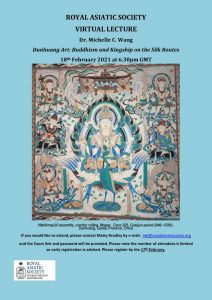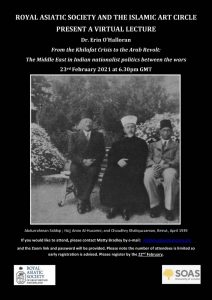Does the sun ever set on our Editorial Board?
At the end of last year, we were pleased to announce that four additional scholars (Associate Editors) would be joining the Editorial Board and our editorial team.
After Christmas, I welcomed each of them individually by email and received warm replies from them all. Interestingly the pattern in which their response arrived was revealing. It provides an exciting portrait of the global spread of both our new team members and the enhanced Editorial Board.
Thirteen hours now separate the time zone of our most easterly team member from the time zone of our most westerly team member. The significance of this is two-fold. First, the timing of editorial board meetings will of course have to be arranged sensitively so that everyone can attend; but, second, our Society, founded to serve the intellectual interests of westerners in Asia, albeit propelled often by colonialism and imperialism, has come full-circle. Although I have not worked out whether ‘the sun ever sets on our editorial board’, one thing is certain—we can now celebrate the participation of scholars from Taiwan, India, Turkey and North America at the click of a mouse and this is precisely what we are doing. Of course, for a long time the Journal has published the work of large numbers of authors based outside the UK, but throughout the 21st Century the participation of non-UK authors has accelerated.
The pie-chart below gives details of where submissions received in 2020 came from. While many articles arrived from the United States, it is clear that India and China generated a healthy flow too, many of which were accepted. Readers will note that we even got a submission from Christmas Island!

Our current online lectures also reflect a greater diversity in regards to geographical participation which brings us to the lectures that we have announced for this month.
Charlotte de Blois
Dr. Michelle Wang Lecture:
The Society is pleased to announce that Dr. Michelle C. Wang from the Department of Art and Art History at Georgetown University, will be joining us for a virtual lecture on, Dunhuang Art: Buddhism and Kingship on the Silk Routes. This will be held on Thursday 18th February at 6:30pm.
Dr. Wang is a specialist in the Buddhist and Silk Road art of north-western China and her first book, ‘Mandalas in the Making: The Visual Culture of Esoteric Buddhism at Dunhuang’ (Brill, 2018) examined Buddhist mandalas of the 8th-10th centuries at the Mogao and Yulin Buddhist cave shrines in north-western China.
This event is proving extremely popular on our social channels so early registration is recommended. Please email Matty Bradley at mb@royalasiaticsociety.org to book your place!

Dr. Erin O’Halloran Lecture:
On Tuesday 23rd February, Dr. Erin O’Halloran who is a Visiting Fellow at the Bill Graham Centre for Contemporary International History, University of Toronto, will be giving a virtual lecture entitled: From the Khilafat Crisis to the Arab Revolt: The Middle East in Indian nationalist politics between the wars.
Dr. O’Halloran is a historian of empire and transnational connectivity across the Middle East and South Asia and she completed her D.Phil. at St. Anthony’s College, Oxford in 2019. Her forthcoming book is entitled ‘Empire and the East: Egypt, India and the World between the Wars.’ Her lecture will explore the interaction between Egypt and India in the interwar years when both countries were seeking independence from Britain. To book your place, please email Matty Bradley at mb@royalasiaticsociety.org.
We look forward to welcoming many of you at both of these events.

We would like to give special thanks to our Journal Executive Editor, Charlotte de Blois for her contribution to this week’s blog post.
